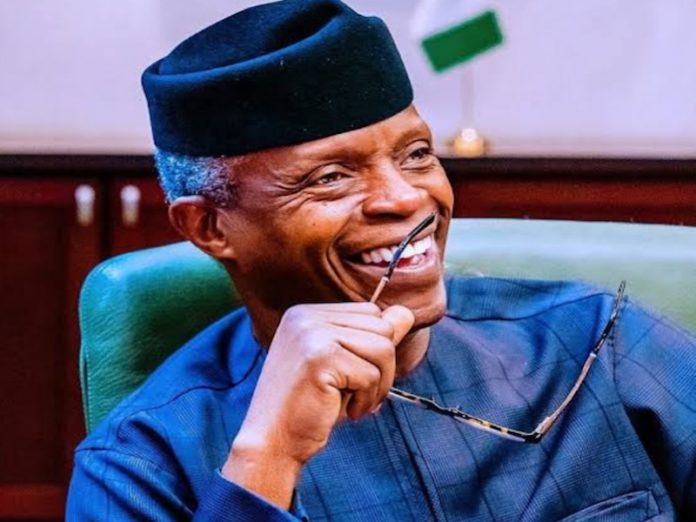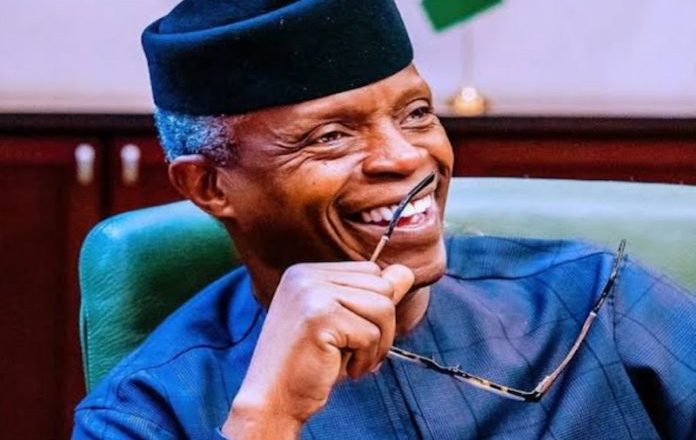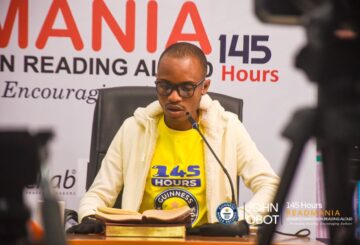
Prof. Yemi Osinbajo, the Vice President, has asked developed countries to promise to pay for Africa’s energy transition in full.
Osinbajo made the call in an article he wrote for The Economist magazine called “Yemi Osinbajo on the Hypocrisy of Rich Countries’ Climate Policies.” In the article, he argued that Nigeria needed $400 billion in new investments on top of what it was already spending to meet its net-zero goal.
He also said that Africa wasn’t a threat to the world’s climate goals and that LNG should be seen as a clean way to cook.
Osinbajo wrote: “First, developed countries should agree to pay for the energy transition in Africa in full. This is both the right thing to do and a necessity for the environment.
“We think that Nigeria needs an extra $400 billion in investments on top of spending as usual to meet its net-zero pledge.” A green energy plan like the one South Africa has should bring in at least $10 billion per year for the next 20 years. Investments would go toward not only new renewable energy projects, but also transmission infrastructure, smart grids, data management systems, storage capacity, electric vehicles, clean cooking, and the costs of integrating new distributed energy systems.
He pointed out that the annual UN climate talks (COP26) in Scotland last year were a good sign when South Africa was given a $8.5 billion package to speed up its energy transition. He said, “It is high time to give this kind of help to the rest of the continent.”
“Now is the best time to change global policy so that Africa’s plans to make clean energy can move forward. Rich countries have done the most to cause climate change, so they can’t ask others to do more than they’re willing to do themselves.
He also said that the world would not be able to solve its problems if poor countries were treated like second-class citizens and their hopes were not taken into account.
Osinbajo insisted that Africa’s rise should not be seen as a threat that needs to be stopped. Instead, he said, the continent should be seen as a huge chance, since the challenge for Africa was to move to net-zero emissions while building sustainable power systems to drive growth and economic opportunity.
He also said that the EU’s recent decision to call natural gas and nuclear power “green investments” was an important recognition of the fact that “different countries will take different paths in the energy transition. If this is true for Europe, it’s even more true for the many countries in Africa.”
He said that after colonialism, decades of unfair economic practices, and COVID-19 vaccine apartheid, Africa “cannot accept regressive climate policy as another injustice.” Poverty and climate change are both big problems that can only be solved if all countries do their fair share and the whole world pulls itself up.
“Solar will provide most of our power in the future, but we still need natural gas for base load power and balance. We insist that liquefied petroleum gas (LPG) be included as a clean cooking option to save the lives of our women and girls and to protect our own natural environment.
“Europe says it needs to invest in gas for another 10 years if it wants to meet its climate goals by 2050. Africa, which has more problems, should have at least 20 more years to meet its climate goals.
The vice president said that the Nigerian government was still committed to giving everyone access to energy. He also said that all Nigerians deserved to enjoy the benefits of modern energy that people in the rich world take for granted.
“We should try to make a national average of at least 1,000 kilowatt-hours of power per person. This, plus the fact that the population is growing, means that by 2050 we will need to make 15 times more electricity than we do now. “That big goal will need a lot of money,” he said.
- Tags: Africa's Energy, Yemi Osinbajo





